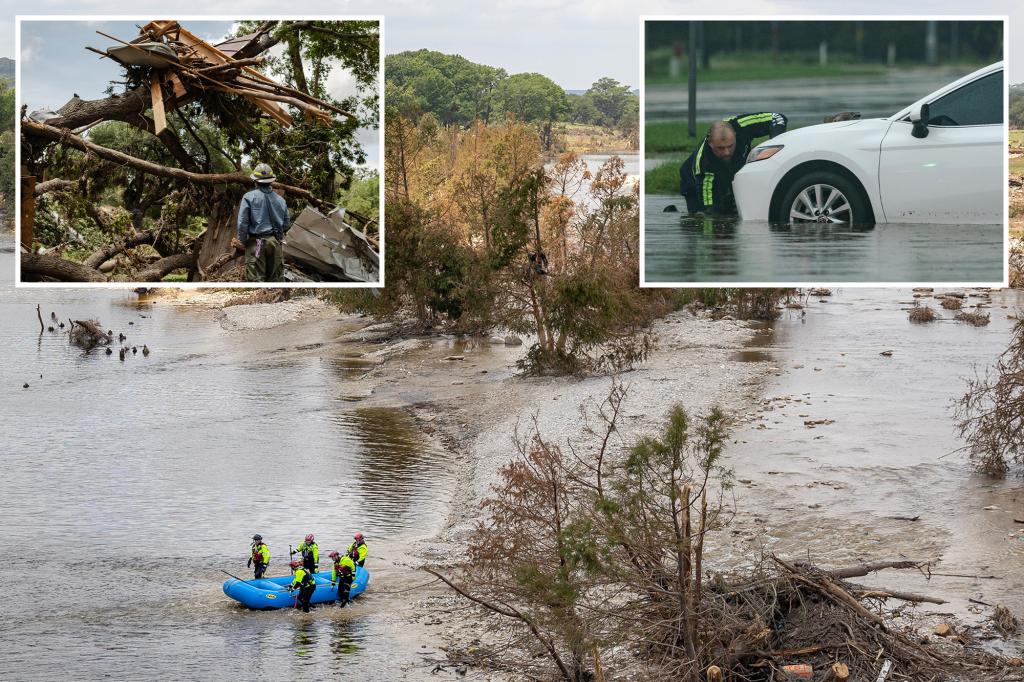Rising Concerns Over Climate Change Impact on Global Food Security
As climate change accelerates, experts warn of its severe implications for global food security. Recent assessments indicate that extreme weather patterns, shifting agricultural zones, and water scarcity threaten food production worldwide. This urgent issue has drawn attention from governments, environmental groups, and agricultural stakeholders alike, highlighting the need for immediate and effective action.
The Current Landscape of Food Production
According to the Food and Agriculture Organization (FAO), global food production must increase by approximately 70% to meet the demands of an estimated 9.7 billion people by 2050. However, climate change is already disrupting agricultural practices, pushing many regions to the brink of crisis. In 2022 alone, droughts in East Africa and floods in South Asia resulted in a staggering loss of crops, directly affecting millions of people.
“The impacts of climate change are not just distant threats but are happening now,” says Dr. Lisa Rodriguez, a climate scientist at the Institute for Environmental Research. “Farmers are facing unpredictable weather patterns that hinder their ability to produce food reliably.” This unpredictability is particularly concerning for developing nations, which often lack the resources to adapt to changing conditions.
Extreme Weather Events and Their Consequences
Extreme weather events, including hurricanes, floods, and prolonged droughts, have become more frequent and intense due to climate change. The Intergovernmental Panel on Climate Change (IPCC) reports that the frequency of severe droughts has increased by 20% over the past two decades. These events devastate crops, disrupt supply chains, and inflate food prices, making it increasingly difficult for vulnerable populations to access necessary nutrition.
- In 2021, the world experienced an unprecedented rise in food prices, with the FAO Food Price Index reaching its highest level since 2011.
- Countries like Sudan and Yemen reported food insecurity rates exceeding 60%, largely attributed to climate-induced agricultural losses.
- In the United States, farmers have seen their yields fluctuate dramatically, with corn production falling by as much as 25% in some regions due to drought.
These statistics underscore the urgent need for a multifaceted approach to address the intersection of climate change and food security. As Dr. Rodriguez emphasizes, “We need to invest in sustainable agricultural practices that can withstand these changes rather than relying on traditional methods that may no longer be viable.”
Shifting Agricultural Zones: A Growing Concern
As temperatures rise, agricultural zones are shifting, forcing farmers to adapt or abandon their land. For instance, regions traditionally known for wheat production are seeing declining yields, while areas previously unsuitable for agriculture are becoming viable. This shift not only disrupts local economies but also poses a significant challenge to global trade.
“The redistribution of agricultural zones means some countries will benefit while others suffer,” warns Dr. Mark Ellis, an agricultural economist. “This could lead to geopolitical tensions as nations scramble for resources.” The result is a complex web of challenges that not only impacts food availability but also national security.
Technological Innovations and Adaptation Strategies
In light of these challenges, many experts advocate for the adoption of innovative technologies and adaptive agricultural practices. Techniques such as precision farming, drought-resistant crop varieties, and advanced irrigation systems are crucial for enhancing resilience against climate change.
Several countries are already implementing these strategies. For example:
- Israel has led the way in water conservation techniques, utilizing drip irrigation and treated wastewater to sustain agricultural productivity.
- In the United States, farmers are increasingly adopting precision agriculture, which uses data analytics to optimize crop yields while minimizing resource use.
- Research into genetically modified organisms (GMOs) has also provided promising results, with crops engineered to tolerate extreme weather conditions showing increased resilience.
While these technologies offer hope, they also raise ethical and environmental questions that must be addressed. “We must ensure that innovations in agriculture do not come at the cost of biodiversity or soil health,” Dr. Rodriguez warns. Balancing technological advancement with ecological sustainability will be crucial for long-term food security.
The Role of Policy and International Cooperation
Policy frameworks play a significant role in addressing the challenges posed by climate change to food security. Governments must prioritize agricultural resilience in their climate action plans and invest in research and development. International cooperation is equally vital, as global food systems are interconnected.
Recent initiatives, such as the United Nations’ Climate Change Conference (COP) and the World Food Summit, have emphasized the need for collaborative efforts to combat climate change and its impact on food security. “We need a unified global approach to tackle this crisis,” states Dr. Ellis. “Food security is a global challenge, and it requires a collective response.”
Looking Ahead: Implications for Future Food Security
The implications of unchecked climate change on food security are profound. Without immediate action, we risk exacerbating hunger and malnutrition worldwide, particularly in vulnerable populations. The future of our food systems hinges on our ability to adapt to changing conditions while fostering sustainable practices that ensure food availability for all.
As we move forward, it is essential to prioritize investments in technology, research, and sustainable practices while fostering international collaboration. The future of global food security depends on our collective response to the pressing challenges posed by climate change. We must act now to safeguard our food systems for generations to come.
For those interested in learning more about sustainable agricultural practices and how they can contribute to food security, consider participating in local community programs or workshops focused on sustainable farming techniques. Every action counts in the fight against climate change.



